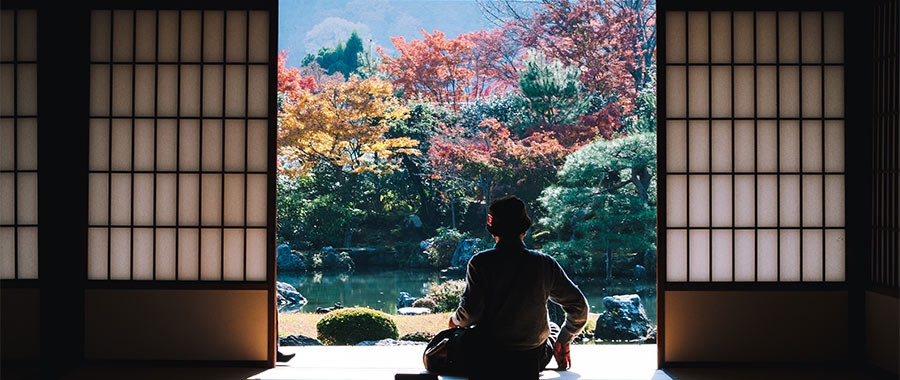The views expressed in our content reflect individual perspectives and do not represent the authoritative views of the Baha'i Faith.
My mind always buzzes with activity, taking in stimuli, analyzing, imagining, planning, and deciding—but I often feel the need to quiet its chatter to find internal peace.
My busy brain can be hard to calm, so when I want to hone into my thoughts, I need to find silence. As I’ve learned more about meditation as a therapeutic tool for my personal experience, I’ve heard many people comment on the challenge of focusing their thoughts.
With the spread of social media and different technologies, attention spans shorten; educators nationwide witness the rise in attention deficit issues among their students; over-stimulation affects everything from the way we operate in workplaces to the way we sleep, and our lives have become deeply shaped by the internet’s flashy and fast-paced stimulation. But the more complex our problems become, the more we can benefit from meditative silence—although many of us find it hard to sit in silence for any extended period of time.
The Baha’i teachings explain that:
The sign of the intellect is contemplation and the sign of contemplation is silence, because it is impossible for a man to do two things at one time—he cannot both speak and meditate. – Abdu’l-Baha, Paris Talks, p. 174.
In the mode of meditation, we can find intellectual clarity. Even under pressure, taking a moment to focus deeply and meditate on the issue allows us to open our minds to find a solution. Even though talking to people about a problem can help, silent deliberation delivers something special. Perhaps, when we don’t focus on talking, we can deal with our thoughts and feelings in their raw form. In a conversation, the limits of our language distract us, as does the pressure of trying to express ourselves clearly and read how others react to us.
By infusing our day-to-day routine with meditative energy, we also help silence the ego, which clouds our mind with some of its loudest thoughts. As we get better at moving in silence, the number of self-centered thoughts we have will diminish—which means less to sort out when we try to access inspiration from the divine source through meditation:
Let us put aside all thoughts of self; let us close our eyes to all on earth, let us neither make known our sufferings nor complain of our wrongs. Rather let us become oblivious of our own selves, and drinking down the wine of heavenly grace, let us cry out our joy, and lose ourselves in the beauty of the All-Glorious. – Abdu’l-Baha, Selections from the Writings of Abdu’l-Baha, p. 236.
This might sound intimidating to someone new to meditation, or anyone trying to integrate a more meditative energy into their life. Changing thought patterns takes time, so if meditation were only beneficial for completely silencing distracted thoughts, then hardly any of us would gain much from it.
Instead of expecting to completely empty ourselves of meaningless thoughts when we meditate, we can forgive ourselves, and let thoughts flow in and out without judgment. Rather than trying not to have any thoughts, we can de-clutter our minds by giving ourselves the permission to let the thoughts be. When we meditate, we cease to attach our thoughts to emotion or meaning—we simply recognize distracted thoughts and let them fade away. That allows us to focus our minds on “the secret of things unseen:”
Meditate profoundly, that the secret of things unseen may be revealed unto you, that you may inhale the sweetness of a spiritual and imperishable fragrance, and that you may acknowledge the truth … so that light may be distinguished from darkness, truth from falsehood, right from wrong, guidance from error, happiness from misery, and roses from thorns. – Baha’u’llah, The Book of Certitude, p. 8.
You May Also Like
Comments

















"Paris Talks" 'Abdu'l-Bahá pp. 174-76